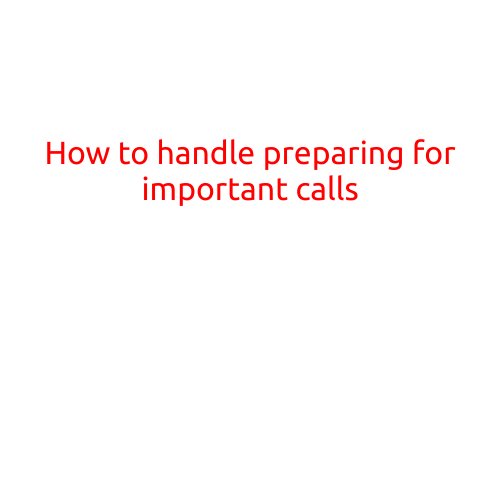
What is the Best Way to Improve Phone Communication Skills?
In today’s digital age, phone communication has become an essential part of our daily lives. Whether it’s a personal or professional call, effective phone communication skills are crucial to convey your message, build relationships, and achieve your goals. However, many of us struggle with phone calls, often leading to misunderstandings, miscommunication, or even missed opportunities. In this article, we will explore the best ways to improve your phone communication skills and enhance your overall calling experience.
The Importance of Phone Communication Skills
Phone communication skills are vital in both personal and professional settings. Here are a few reasons why:
- Building relationships: Phone calls help you build rapport and establish trust with others, whether it’s a friend, family member, or business partner.
- Conveying information: Phone calls enable you to effectively convey your message, whether it’s sharing information, negotiating a deal, or resolving an issue.
- Saving time: Phone calls can save you time and effort compared to in-person meetings or long emails.
- Improving customer service: Phone communication helps you provide excellent customer service, leading to increased customer satisfaction and loyalty.
Top Tips to Improve Phone Communication Skills
To become a pro at phone communication, follow these simple yet effective tips:
- Prepare beforehand: Before making a call, prepare what you want to say, and make a mental or written note of the key points you want to cover.
- Use the right tone: Pay attention to your tone and pitch. Speak clearly, slowly, and confidently. Avoid being too aggressive or passive.
- Be attentive: Listen actively to the other person, and show that you’re engaged in the conversation. Avoid interrupting or dismissing their concerns.
- Ask open-ended questions: Encourage the other person to share more information by asking open-ended questions that begin with what, how, or why.
- Take notes: Take notes during the call to remember important details, requests, or agreements.
- Be patient: Phone calls can sometimes be frustrating, but it’s essential to remain patient and composed, even when dealing with difficult or challenging situations.
- Use positive language: Frame your message in a positive and constructive way, focusing on solutions rather than problems.
- Follow up: After the call, send a follow-up email or text to confirm the discussion, action items, or next steps.
- Practice active listening: Practice active listening by repeating back what you’ve heard, clarifying any misunderstandings, and asking for clarification when needed.
- Learn from feedback: Seek feedback from others on your phone communication skills, and use it as an opportunity to improve and grow.
Additional Tips for Overcoming Phone Communication Challenges
Phone communication challenges can arise at any time. Here are some additional tips to help you overcome common challenges:
- Handle interruptions: Speak slowly, firmly, and with confidence to interrupt any interruptions or distractions.
- Deal with aggressive or confrontational callers: Stay calm, composed, and assertive, and try to address the caller’s concerns in a respectful manner.
- Manage long or complex calls: Use pauses to gather your thoughts, take notes, and prioritize the most important information to convey.
Conclusion
Effective phone communication skills are essential in today’s fast-paced world. By following these simple yet powerful tips, you can enhance your phone communication skills, build stronger relationships, and achieve your goals. Remember to prepare beforehand, use the right tone, be attentive, and take notes. With practice and patience, you’ll become a pro at phone communication and be able to convey your message with confidence and clarity.





